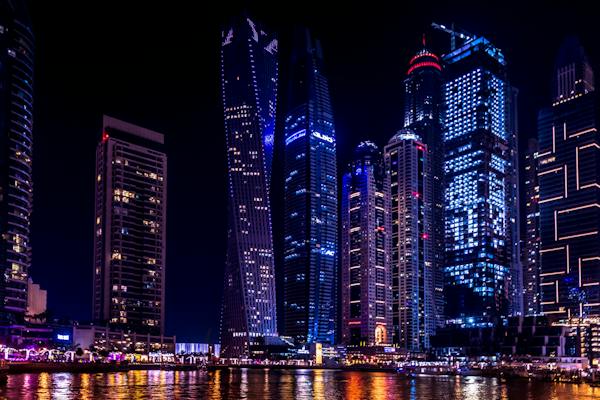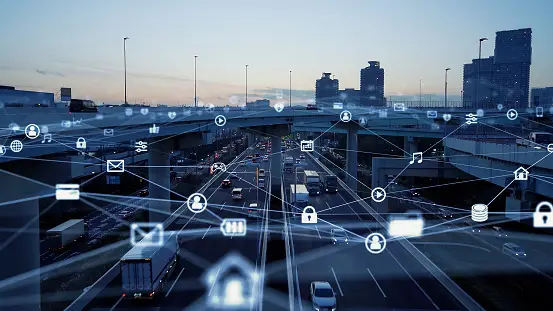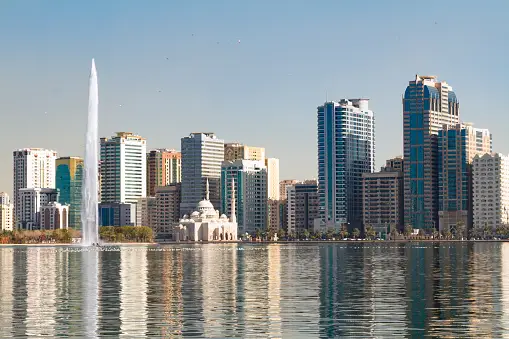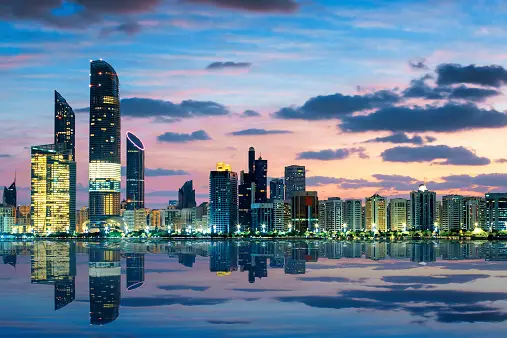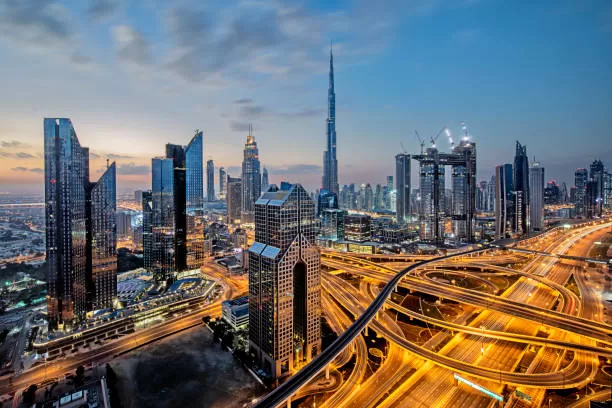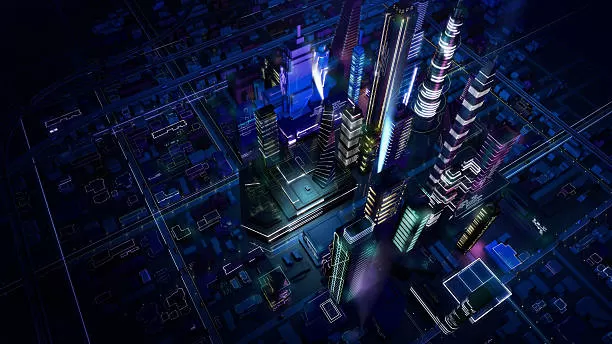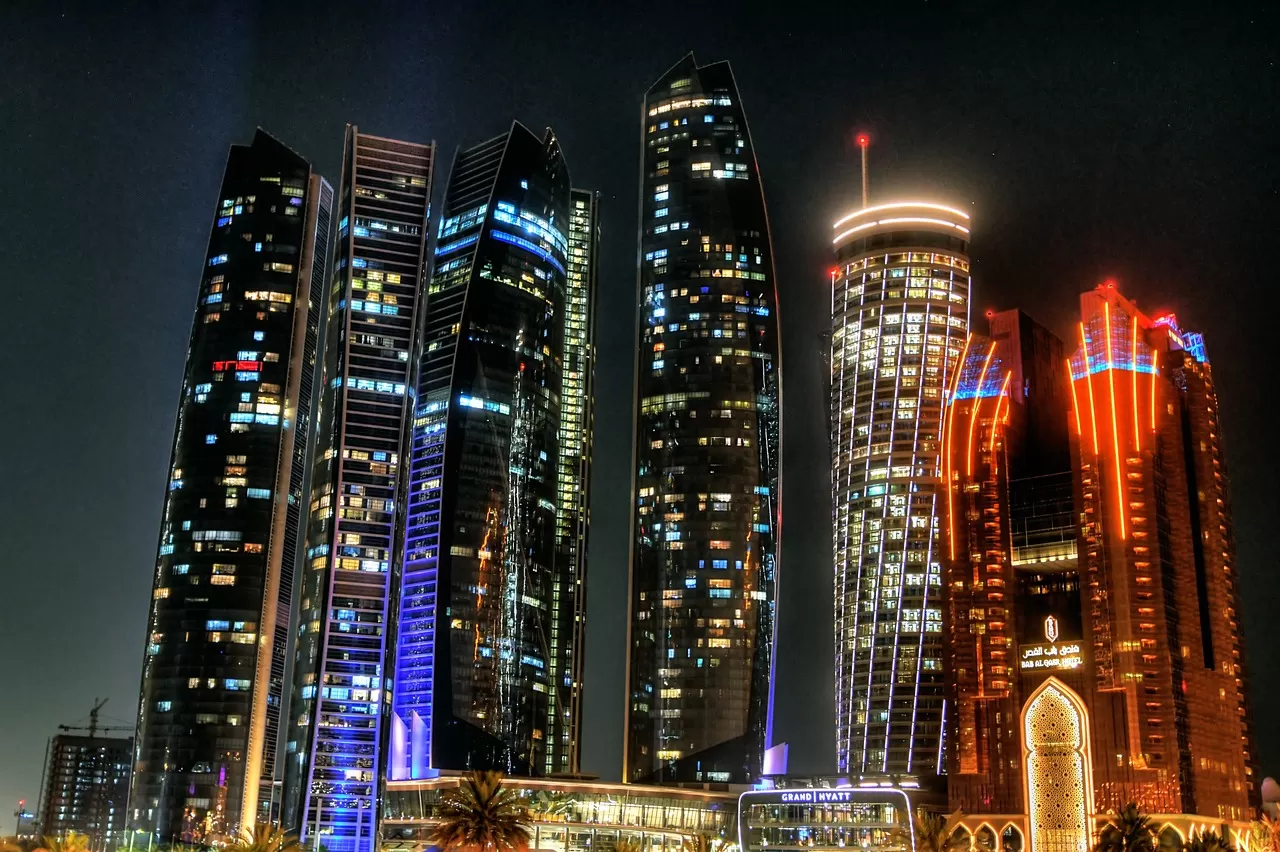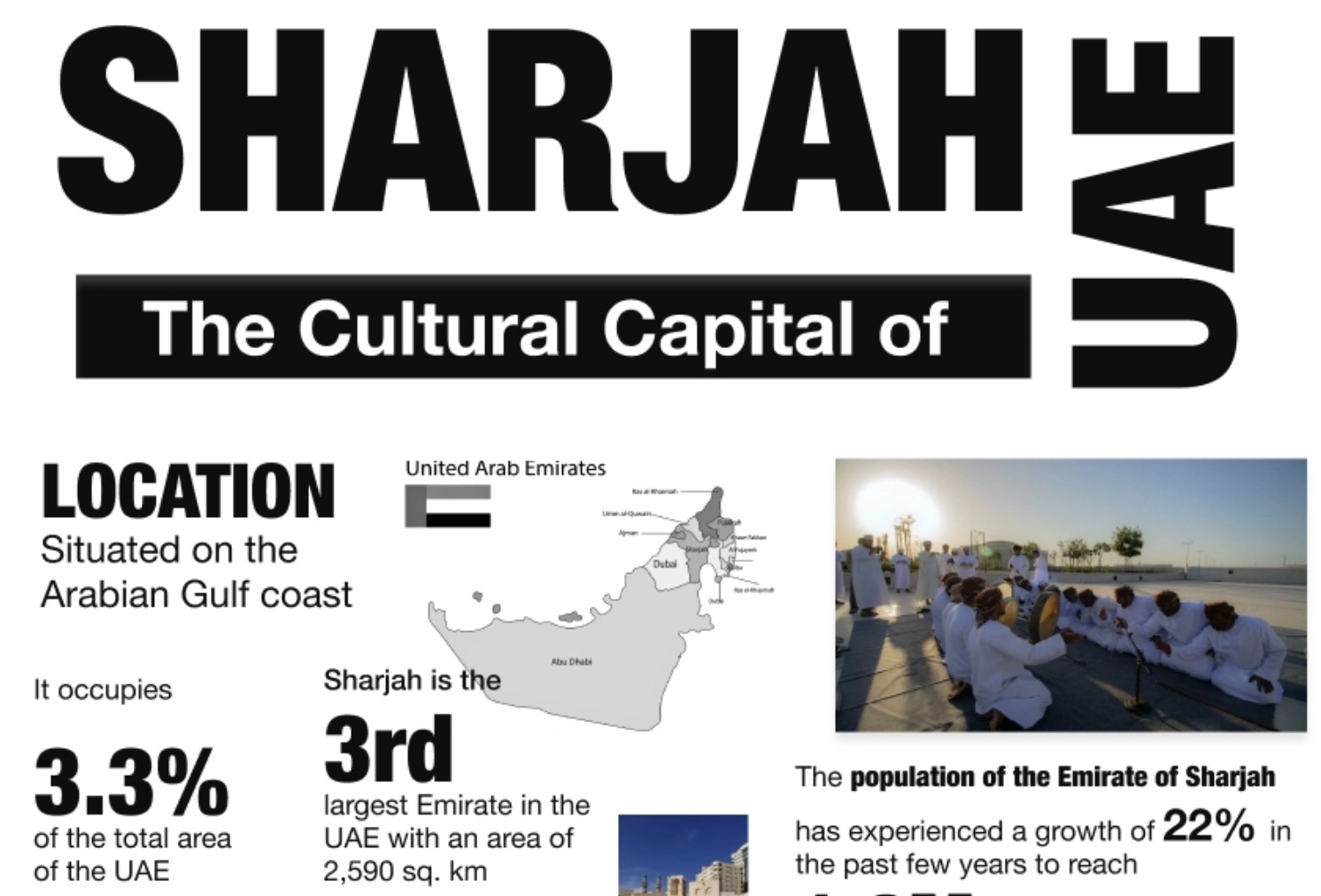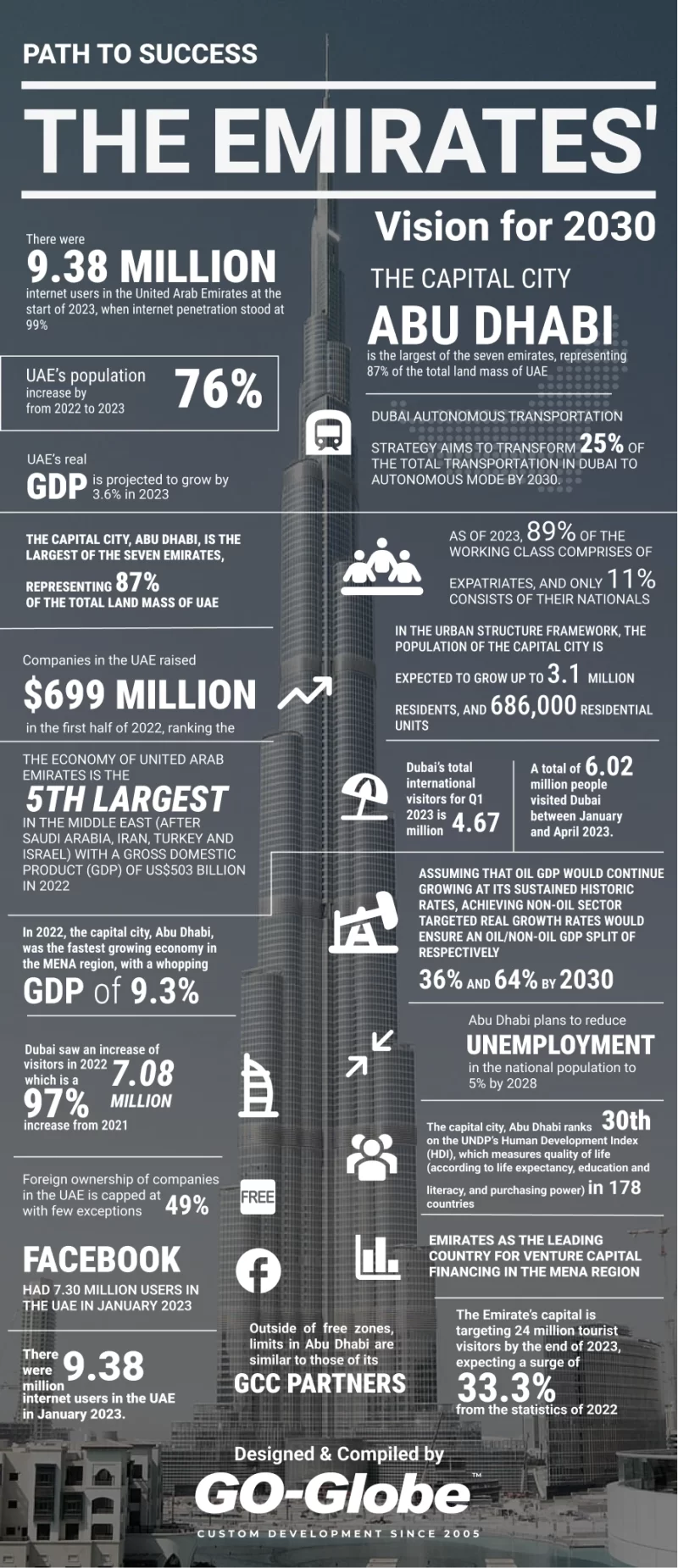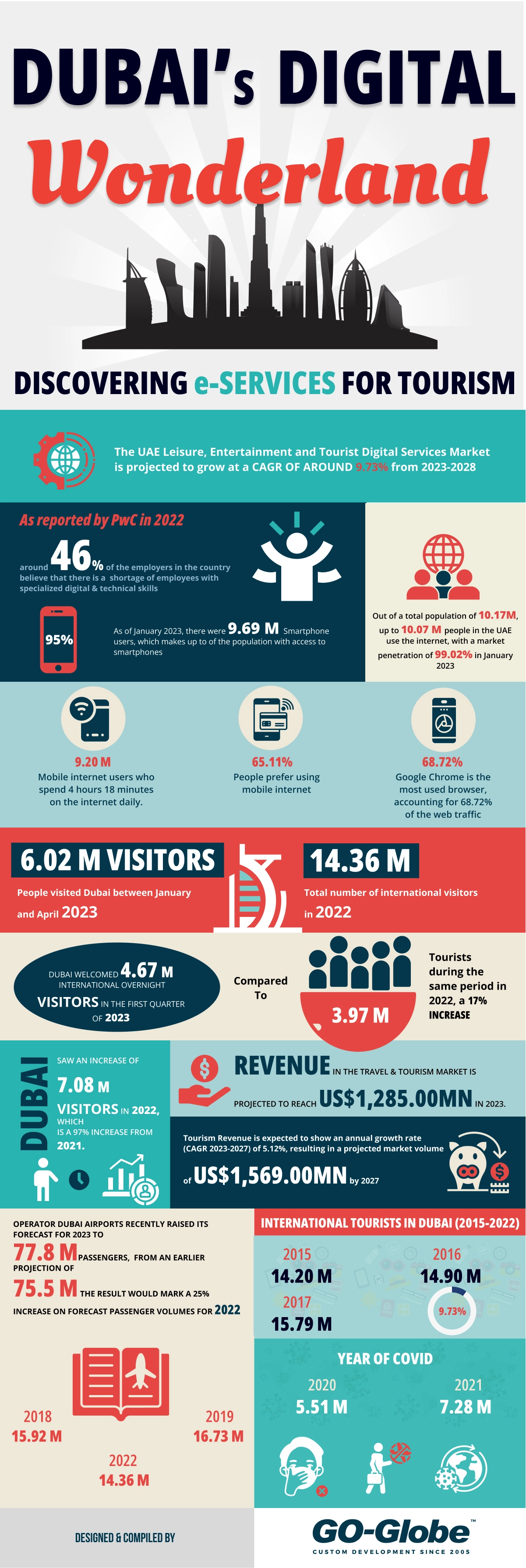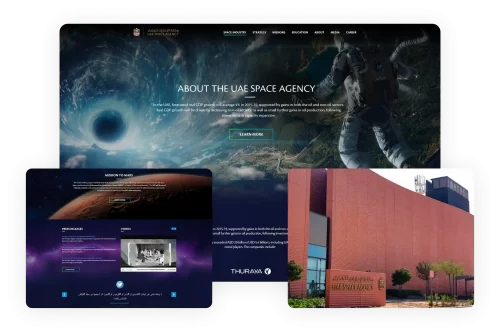Dubai, a city synonymous with opulence and innovation, has emerged as a powerhouse in the global digital landscape. In the heart of the Middle East, this metropolis is not only a symbol of architectural marvels but also a hub for technological advancements.
Introduction
In the digital age, this city has seamlessly integrated technology into its fabric, with web development playing a central role in this transformation. Businesses in Dubai are leveraging web development strategies to enhance their online presence, connect with a global audience, and stay competitive in the ever-evolving digital landscape. This article explores the journey of Dubai's web development mastery and its profound impact on empowering businesses.
Evolution of Web Development in Dubai
Dubai's ascent in the digital world has been nothing short of remarkable, marked by a fascinating evolution of web development. To comprehend the significance of today's web development mastery, we must journey back to the city's early ventures into the digital realm.
Historical Perspective
In the nascent stages of the internet era, Dubai ventured into web development with a focus on basic static websites. These early websites served as digital brochures, providing essential information about businesses and services. It was a foundational step, laying the groundwork for the intricate web experiences we encounter today.
Technological Advancements
As technology advanced globally, Dubai was quick to embrace the changes, propelling its web development scene forward. The transition from static to dynamic websites marked a turning point, enabling businesses to create more interactive and engaging online platforms. This shift reflected Dubai's commitment to staying abreast of the latest technological trends.
Dubai's developers also adopted cutting-edge technologies, incorporating features like e-commerce capabilities, content management systems (CMS), and responsive design. This adaptability showcased the city's agility in navigating the ever-evolving landscape of web development. Today, Dubai stands as a beacon of innovation in web development, with a skyline not only adorned with architectural wonders but also intertwined with a digital tapestry that reflects the city's technological prowess.
Key Components of Successful Web Development
Successful
web development in Dubai goes beyond mere aesthetics; it involves a meticulous integration of various components to create a digital presence that not only captivates but also functions seamlessly. Here are the key elements that define success in web development within the vibrant landscape of Dubai. The evolution of web development in Dubai mirrors the city's broader journey of transformation from a regional hub to a global player in various industries. As businesses in Dubai continue to evolve, so too does the field of web development, solidifying its place as a cornerstone of the city's digital success.
Responsive Design
In a world dominated by diverse devices, responsive design is paramount. Dubai's successful web development hinges on creating websites and applications that adapt effortlessly to different screen sizes. Whether viewed on a desktop, tablet, or smartphone, the user experience remains consistent and enjoyable, reflecting the city's commitment to accessibility.
User-Friendly Navigation
Dubai places a premium on user experience, and intuitive navigation lies at the core of this philosophy. Websites developed in the city prioritize easy navigation, ensuring that users can swiftly find the information they seek. Clear and logical menus, coupled with well-structured content, contribute to a positive user journey, fostering engagement and satisfaction.
SEO Integration
In the competitive digital landscape, visibility is key. Successful web development in Dubai involves a strategic integration of Search Engine Optimization (SEO) techniques. Websites are optimized for search engines, ensuring they rank well in search results. This emphasis on SEO reflects Dubai's understanding of the importance of online visibility in a global marketplace.
Cutting-Edge Technologies
Dubai's web developers embrace cutting-edge technologies to create innovative and feature-rich digital experiences. From augmented reality to artificial intelligence, the city's commitment to staying at the forefront of technological advancements is evident in the web development landscape. This infusion of advanced technologies not only enhances user engagement but also sets Dubai apart as a tech-savvy hub.
Scalability and Flexibility
Dubai's dynamic business environment requires web solutions that can adapt to evolving needs. Successful web development in the city prioritizes scalability and flexibility, ensuring that websites and applications can grow seamlessly with the expanding requirements of businesses. This adaptability is crucial in a city where change is constant.
Security Measures
As digital interactions increase, so does the importance of cybersecurity. Web development in Dubai incorporates robust security measures to protect sensitive data and ensure user trust. Adherence to global security standards and continuous monitoring of potential vulnerabilities reflect Dubai's commitment to safeguarding digital assets.
Integration of Social Media
Dubai, being a global city, understands the significance of social media in reaching diverse audiences. Successful web development in the city involves seamless integration with various social media platforms. This not only enhances brand visibility but also facilitates social engagement, aligning with Dubai's cosmopolitan and socially connected culture.
Data Analytics for Continuous Improvement
Web development in Dubai is not a one-time effort but an ongoing process of refinement. The incorporation of data analytics tools allows businesses to gather insights into user behavior, preferences, and trends. This data-driven approach enables continuous improvement, ensuring that digital platforms evolve in alignment with changing user expectations.
Web Development Trends in Dubai
Dubai's tech ecosystem is a melting pot of creativity and innovation. The city fosters a collaborative environment that encourages the exchange of ideas and the formation of strategic partnerships. In a rapidly changing technological landscape, staying updated is crucial. Dubai's web development scene is marked by a proactive approach to emerging technologies. As businesses in the region strive to stay ahead in the dynamic digital landscape, several trends are shaping the way websites and applications are designed and developed.
Embracing Emerging Technologies
Dubai's web development scene is marked by a proactive approach to incorporating emerging technologies. From Artificial Intelligence (AI) to Virtual Reality (VR) and Blockchain, businesses are exploring innovative ways to enhance user experiences. AI-driven chatbots, immersive VR experiences, and blockchain-based security measures are becoming integral parts of web development projects, reflecting Dubai's commitment to cutting-edge solutions.
Progressive Web Apps (PWAs)
The concept of Progressive Web Apps (PWAs) is gaining momentum in Dubai. These apps combine the best of web and mobile applications, providing users with a seamless and fast experience. PWAs are designed to work on any device and can be accessed through a web browser, eliminating the need for traditional app downloads. This trend aligns with Dubai's tech-savvy population, which values convenience and efficiency.
Mobile-First Design
With the majority of users accessing the internet through mobile devices, Dubai's web developers are prioritizing mobile-first design strategies. Ensuring that websites are optimized for mobile platforms is not just a trend but a necessity. This approach enhances user experience and aligns with Dubai's on-the-go lifestyle, where smartphones play a central role in accessing digital content.
Voice Search Optimization
As voice-activated devices become increasingly prevalent, Dubai's web development landscape is adapting to accommodate voice search functionality. Optimizing websites for voice search is a growing trend, with businesses recognizing the importance of being easily discoverable through voice-activated assistants. This trend reflects Dubai's inclination towards embracing technology that enhances user convenience.
Cross-Browser Compatibility
In a diverse and global business environment like Dubai, cross-browser compatibility is a crucial consideration in web development. Ensuring that websites function seamlessly across different browsers and platforms is a trend that continues to gain prominence. This approach aligns with Dubai's international business community, where users may access websites from various devices and browsers.
Augmented Reality (AR) Integration
Dubai's penchant for grandeur extends to the digital realm, with the integration of Augmented Reality (AR) in web development projects. From interactive product demonstrations to virtual tours, AR is enhancing user engagement and providing immersive experiences. This trend is particularly prevalent in industries such as real estate, tourism, and retail, where Dubai strives to offer unique and memorable interactions.
Cybersecurity Measures
With the increasing importance of online transactions and data exchange, cybersecurity is a top priority in Dubai's web development trends. Businesses are incorporating robust security measures to protect user data and build trust in online interactions. Dubai's commitment to creating a secure digital environment is reflected in the stringent cybersecurity protocols integrated into web development projects.
Data Privacy and Compliance
In line with global standards, Dubai's web development community is placing a strong emphasis on data privacy and compliance. Adhering to regulations and standards ensures that businesses in Dubai maintain the trust of their users. This trend aligns with the city's commitment to ethical and responsible digital practices.
The Impact of Web Development on Business Growth
The tangible impact of web development on business growth is evident in success stories from various industries. Businesses that have embraced digital transformation have experienced heightened customer reach and engagement.
Heightened Customer Reach and Engagement
Web development serves as the gateway for businesses in Dubai to extend their reach beyond geographical boundaries. A well-crafted online presence enables companies to connect with a global audience, breaking down traditional barriers. This heightened visibility not only attracts new customers but also fosters engagement with existing ones, creating a dynamic and interactive relationship.
24/7 Accessibility and Convenience
In a city known for its dynamic lifestyle, where business transactions occur at all hours, web development plays a pivotal role in providing 24/7 accessibility. Businesses in Dubai leverage websites and online platforms to offer products and services around the clock, meeting the demands of a diverse and bustling population. This accessibility contributes to increased customer satisfaction and loyalty.
Enhanced User Experience
The user experience is paramount in Dubai's business ethos, and web development is the cornerstone of creating seamless and enjoyable interactions. Intuitive navigation, responsive design, and user-friendly interfaces are not just preferences but expectations. Businesses that invest in enhancing the user experience through web development find themselves with a competitive edge in Dubai's crowded marketplace.
Effective Marketing and Branding
Web development is not merely a technical aspect but a potent tool for marketing and branding. In Dubai's cosmopolitan environment, businesses utilize their online presence to craft compelling narratives, showcase their unique offerings, and establish a distinct brand identity. A well-designed website serves as a digital storefront, leaving a lasting impression on potential customers.
Data-Driven Decision Making
Web development facilitates the collection of valuable data on user behavior, preferences, and interactions. Businesses in Dubai harness this data to make informed decisions, refine their strategies, and tailor their offerings to meet evolving market demands. The analytical insights derived from web development contribute to strategic growth planning and improved business agility.
Cost-Efficient Business Operations
In a city where efficiency is paramount, web development streamlines business operations, reducing costs and increasing overall efficiency. E-commerce platforms, online payment systems, and automated processes contribute to a leaner business model. This efficiency allows businesses in Dubai to allocate resources strategically, driving growth in a sustainable manner.
Global Competitiveness
Dubai's aspiration to be a global business hub is realized through web development that positions local companies on the world stage. An impactful online presence not only attracts international customers but also enables businesses to compete on a global scale. The digital arena, shaped by effective web development, becomes the battleground where Dubai businesses demonstrate their capabilities and compete for global recognition.
Adaptability to Market Trends
Dubai's business environment is dynamic, with trends and consumer preferences evolving rapidly. Web development provides the agility needed for businesses to adapt swiftly to changing market dynamics. Whether it's embracing new technologies or adjusting digital marketing strategies, businesses in Dubai utilize web development to stay ahead of the curve and remain relevant.
Challenges in Dubai's Web Development Landscape
Despite the remarkable strides in technology and innovation, Dubai's web development landscape is not without its share of challenges. Navigating these hurdles requires a nuanced understanding of the local and global dynamics shaping the digital realm in this vibrant city.
Intense Competition
Dubai's thriving business ecosystem is marked by intense competition, making it challenging for web development projects to stand out. Businesses vying for the attention of the digitally-savvy populace must employ innovative strategies to differentiate themselves in a crowded marketplace.
Technological Complexities
While Dubai embraces cutting-edge technologies, the rapid pace of innovation introduces complexities. Web developers grapple with the challenge of staying updated on emerging trends and integrating new technologies seamlessly. Navigating this ever-evolving landscape requires continuous learning and adaptability.
Changing Consumer Behaviors
The digital preferences of consumers in Dubai are dynamic, influenced by global trends and local nuances. Understanding and adapting to these changing behaviors pose a challenge for web developers. Crafting experiences that resonate with diverse audiences requires a nuanced approach and a keen awareness of shifting consumer expectations.
Regulatory Compliance and Legal Considerations
Dubai has stringent regulations governing various aspects of web development, including data protection and online transactions. Navigating the regulatory environment and ensuring compliance with local laws pose challenges for businesses. Developers must strike a balance between innovation and adherence to legal frameworks to avoid legal pitfalls.
Ensuring Data Security and Privacy
As businesses increasingly rely on digital platforms, ensuring the security and privacy of user data is a critical concern. Dubai's web developers face the challenge of implementing robust security measures to safeguard sensitive information, instilling trust in users and complying with data protection regulations.
Cultural Sensitivity in Design and Content
Dubai's diverse population brings cultural intricacies that must be considered in web development. Striking the right balance in design elements, content tone, and imagery to resonate with a multicultural audience is a challenge. A misstep in cultural sensitivity can lead to misunderstandings or alienation of potential users.
Talent Shortages and Skill Gaps
Despite Dubai's stature as a global business hub, the demand for skilled web developers often outpaces the supply. The talent shortage and skill gaps in specific areas of web development create challenges for businesses looking to execute sophisticated projects. Recruitment and upskilling efforts become crucial in addressing this issue.
Responsive Design Across Devices
With diverse devices in use, ensuring a consistent and responsive design poses a challenge. Web developers need to create platforms that deliver a seamless user experience across various screen sizes and resolutions. Achieving this balance requires meticulous planning and testing.
Balancing Creativity with Corporate Branding
Web development in Dubai demands a delicate balance between creativity and adherence to corporate branding guidelines. Striking this balance is challenging, as businesses aim to express their uniqueness while maintaining a cohesive brand identity across all digital touchpoints.
Evolving Cybersecurity Threats
The digital landscape is not immune to cybersecurity threats, and Dubai is no exception. Web developers face the ongoing challenge of staying ahead of evolving cyber threats, implementing robust security protocols, and ensuring the resilience of digital assets against potential breaches.
Local vs. International Web Development Services
Choosing between local and international
web development services is a decision that businesses in Dubai must carefully consider. Each option has its pros and cons, and factors such as cultural alignment, communication, and project management should be taken into account when making this decision.
The Role of Content in Web Development Strategies
In the digital era, navigating the regulatory landscape is also paramount. Dubai has stringent regulations governing web development to ensure data security and privacy. Businesses must be aware of these regulations and work with developers who prioritize compliance. Beyond code and design, content plays a crucial role in web development. Quality content is not only about engaging the audience but also about enhancing search engine visibility. Businesses in Dubai are recognizing the importance of a comprehensive content strategy in their web development endeavors.
Dubai's Web Development Mastery: Facts, Figures and Statistics in 2023
- In May 2023, mobile devices generated 65.49% of global website traffic.
- As of January 2023, Chrome web browser had the largest share of web traffic in the United Arab Emirates at almost 69%. In comparison, Safari web browser had around 19.2% of the total web traffic in the UAE.
- The Annual Revenue from Web Design in UAE was estimated at US$60,709.6 Million in 2022 and is expected to reach US$96748.41 Million in 2028, with a CAGR of 8.08% during 2022-2028.
- 32% of small businesses already have a mobile app, and 42% plan to build one in the future. On the other hand, 26% of small businesses are unlikely to ever release one.
- The average e-commerce conversion rate on mobile is 2.49% (of completed purchases by visitors), while desktop conversions are 5.06%.
- Mobile drew the largest number of new users at 65%, and mobile generated the highest percentage of returning visitors, at 74%.
- 73.1% of web designers believe that a non-responsive design is the top reason why visitors leave a website.
- Employment of web developers and digital designers is projected to grow 23% from 2021 to 2031, much faster than the average for all occupations.
- 19.05 million cellular mobile connections were active in the United Arab Emirates in early 2023, with this figure equivalent to 200.9% of the total population.
- Internet penetration rate in the United Arab Emirates stood at 99% of the total population at the start of 2023.
- Internet users in the UAE increased by 75,000 (+0.8%) between 2022 and 2023.
- Median mobile internet connection speed in the United Arab Emirates increased by 3.08 Mbps (+2.3%) in the twelve months to the start of 2023.
- Fixed internet connection speeds in the UAE increased by 83.05 Mbps (+80.1%) during the 12 months of 2022.
Future Prospects of Web Development in Dubai
As technology continues to evolve, the future prospects paint a compelling picture of a digital landscape that is both dynamic and transformative.
Increased Adoption of Immersive Technologies
The future of web development in Dubai is likely to see a surge in the adoption of immersive technologies such as Virtual Reality (VR) and Augmented Reality (AR). Businesses will leverage these technologies to create interactive and engaging online experiences, from virtual product demonstrations to immersive virtual tours.
Greater Emphasis on User Experience (UX)
User experience will take center stage in the future of web development in Dubai. As businesses recognise the importance of providing seamless and enjoyable interactions, web developers will focus on creating intuitive interfaces, responsive designs, and personalised user journeys to enhance overall user satisfaction.
Rise in Demand for Skilled Web Developers
The growing significance of web development will lead to an increased demand for skilled professionals in Dubai. Developers with expertise in emerging technologies, responsive design, and cybersecurity will be sought after as businesses seek to stay at the forefront of digital innovation.
Integration of Artificial Intelligence (AI) and Machine Learning (ML)
Dubai's web development landscape is poised to integrate AI and ML more extensively. From chatbots that enhance customer interactions to algorithms that personalize user experiences, these technologies will play a pivotal role in creating smart and adaptive web solutions.
Focus on E-Commerce and Online Transactions
The future will witness a continued emphasis on e-commerce as businesses in Dubai look to capitalize on the growing trend of online transactions. Web development will play a crucial role in creating secure, user-friendly, and feature-rich e-commerce platforms to cater to the evolving needs of consumers.
Mobile-First Strategies Becoming Standard
With the increasing reliance on smartphones, mobile-first strategies will become the standard in web development. Dubai's developers will design websites and applications with a primary focus on mobile responsiveness, ensuring a seamless and optimized experience for users on various devices.
Blockchain Integration for Enhanced Security
Blockchain technology is likely to find wider applications in Dubai's web development landscape. Its decentralised and secure nature will be harnessed to enhance the security and transparency of online transactions, data storage, and user authentication.
Continued Embrace of Progressive Web Apps (PWAs)
Progressive Web Apps (PWAs) will continue to gain popularity in Dubai. These apps, combining the best features of web and mobile applications, offer offline capabilities and fast loading times, contributing to an enhanced user experience.
Conclusion
In conclusion, Dubai's web development mastery is a testament to the city's commitment to innovation and progress. Businesses that embrace web development as a strategic imperative find themselves at the forefront of the digital era. The success of web development in Dubai is a result of a holistic approach that combines technical expertise, user-centric design, and a forward-thinking mindset. Aspiring developers and businesses alike are encouraged to stay abreast of these trends to harness the full potential of the digital future in Dubai. As the city continues to thrive in the digital era, these key components remain instrumental in shaping its web development landscape.



